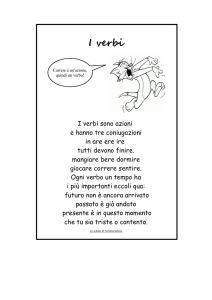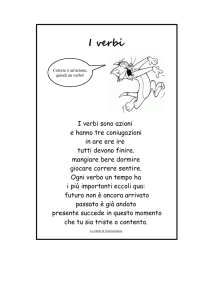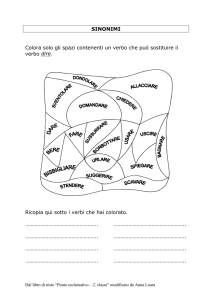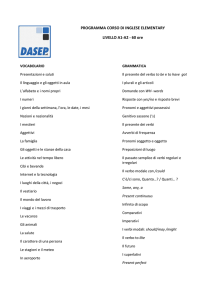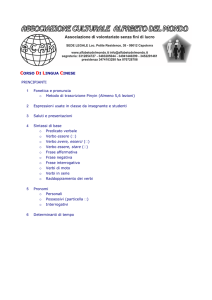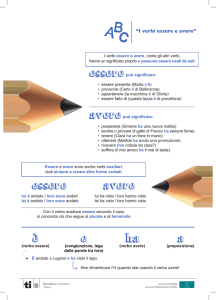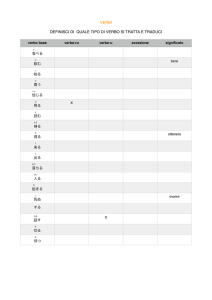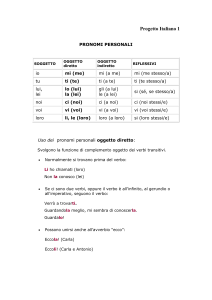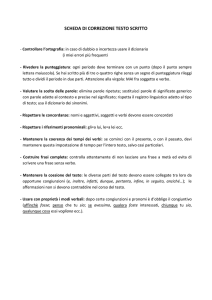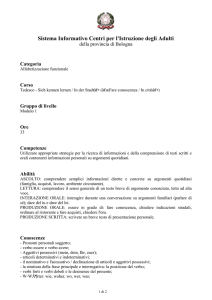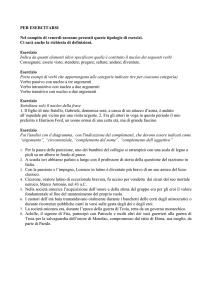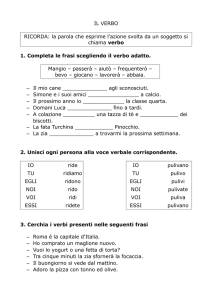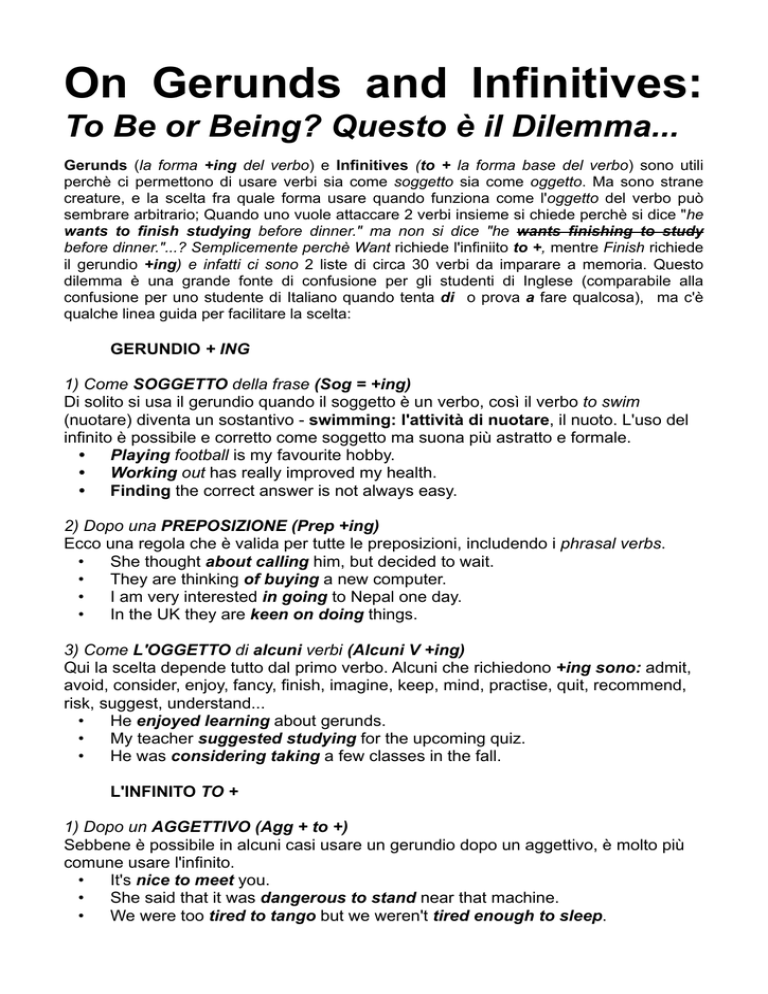
On Gerunds and Infinitives:
To Be or Being? Questo è il Dilemma...
Gerunds (la forma +ing del verbo) e Infinitives (to + la forma base del verbo) sono utili
perchè ci permettono di usare verbi sia come soggetto sia come oggetto. Ma sono strane
creature, e la scelta fra quale forma usare quando funziona come l'oggetto del verbo può
sembrare arbitrario; Quando uno vuole attaccare 2 verbi insieme si chiede perchè si dice "he
wants to finish studying before dinner." ma non si dice "he wants finishing to study
before dinner."...? Semplicemente perchè Want richiede l'infiniito to +, mentre Finish richiede
il gerundio +ing) e infatti ci sono 2 liste di circa 30 verbi da imparare a memoria. Questo
dilemma è una grande fonte di confusione per gli studenti di Inglese (comparabile alla
confusione per uno studente di Italiano quando tenta di o prova a fare qualcosa), ma c'è
qualche linea guida per facilitare la scelta:
GERUNDIO + ING
1) Come SOGGETTO della frase (Sog = +ing)
Di solito si usa il gerundio quando il soggetto è un verbo, così il verbo to swim
(nuotare) diventa un sostantivo - swimming: l'attività di nuotare, il nuoto. L'uso del
infinito è possibile e corretto come soggetto ma suona più astratto e formale.
•
Playing football is my favourite hobby.
•
Working out has really improved my health.
•
Finding the correct answer is not always easy.
2) Dopo una PREPOSIZIONE (Prep +ing)
Ecco una regola che è valida per tutte le preposizioni, includendo i phrasal verbs.
•
She thought about calling him, but decided to wait.
•
They are thinking of buying a new computer.
•
I am very interested in going to Nepal one day.
•
In the UK they are keen on doing things.
3) Come L'OGGETTO di alcuni verbi (Alcuni V +ing)
Qui la scelta depende tutto dal primo verbo. Alcuni che richiedono +ing sono: admit,
avoid, consider, enjoy, fancy, finish, imagine, keep, mind, practise, quit, recommend,
risk, suggest, understand...
•
He enjoyed learning about gerunds.
•
My teacher suggested studying for the upcoming quiz.
•
He was considering taking a few classes in the fall.
L'INFINITO TO +
1) Dopo un AGGETTIVO (Agg + to +)
Sebbene è possibile in alcuni casi usare un gerundio dopo un aggettivo, è molto più
comune usare l'infinito.
•
It's nice to meet you.
•
She said that it was dangerous to stand near that machine.
•
We were too tired to tango but we weren't tired enough to sleep.
2) Dopo un SOSTANTIVO o PRONOME (Sostantivo/Pronome + to +)
Se il verbo ha un complemento oggetto è quasi sempre seguito dal'infinito. Questa
regola vale anche per i verbi che normalmente prendono il gerundio, per esempio
“advise”: “The doctor advised eating more vegetables.” ma "The doctor advised me
to eat more vegetables".
•
I asked him to call you. He told me to do it myself.
•
They persuaded us to come to the meeting.
•
They didn't just encourage us to do it, they forced us to do it.
3) Come L'OGGETTO di alcuni verbi (Alcuni V + to +)
Ancora qui la scelta depende tutto dal primo verbo. Alcuni che richiedono to + sono:
ask, choose, dare, decide, expect, fail, get, hope, intend, learn, manage, need, plan,
promise, refuse, seem, tend, want...
•
We hope to get our test results back next week.
•
He intended to do it. He decided to do it. He managed to do it.
•
The students are planning to have a party this Friday.
*Alcuni Verbi accettano entrambe le forme senza cambiare il significato, per esempio:
like, love, and hate, prefer, continue, start, begin...
•
I love eating pasta.
•
I love to eat pasta.
•
Ma con would si usa l'infinito: I'd love to eat pasta with you someday.
*Alcuni Verbi accettano entrambe le forme ma il significato cambia, per esempio:
forget, remember, regret, stop, try, need...
•
I will never forget meeting the Queen,
but after I met the Queen, I forgot to meet my sister in front of the palace!
•
Did you remember to lock the door?
Yes, I distinctly remember turning the key.
•
Bob was trying to open a jar but couldn't;
I told him to try banging it on the floor.
più dettagli su queste differenze la prossima settimana...

